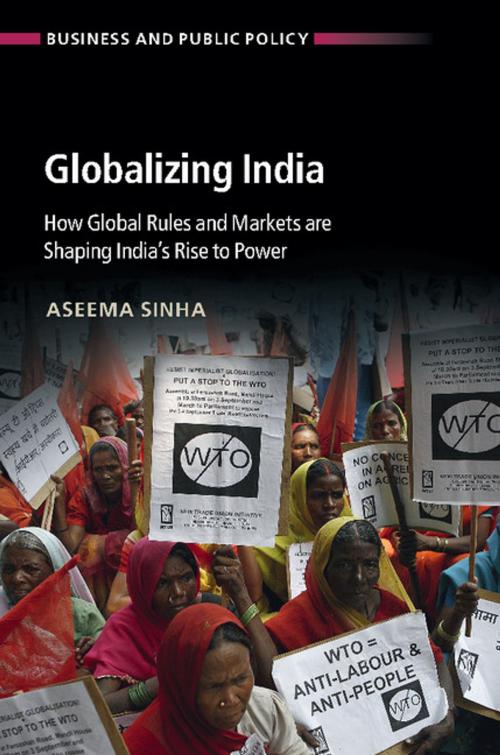Globalizing India
How Global Rules and Markets are Shaping India's Rise to Power
Nonfiction, Social & Cultural Studies, Political Science, International| Author: | Aseema Sinha | ISBN: | 9781316666166 |
| Publisher: | Cambridge University Press | Publication: | April 26, 2016 |
| Imprint: | Cambridge University Press | Language: | English |
| Author: | Aseema Sinha |
| ISBN: | 9781316666166 |
| Publisher: | Cambridge University Press |
| Publication: | April 26, 2016 |
| Imprint: | Cambridge University Press |
| Language: | English |
India's recent economic transformation has fascinated scholars, global leaders, and interested observers alike. In 1990, India was a closed economy and a hesitant and isolated economic power. By 2016, India has rapidly risen on the global economic stage; foreign trade now drives more than half of the economy and Indian multinationals pursue global alliances. Focusing on second-generation reforms of the late 1990s, Aseema Sinha explores what facilitated global integration in a self-reliant country pre-disposed to nationalist ideas. The author argues that the impact of globalization on India has affected trade policy as well as India's trade capacities and private sector reform. India should no longer be viewed solely through a national lens; globalization is closely linked to the ambitions of a rising India. The study uses fieldwork undertaken in Geneva, New Delhi, Mumbai and Washington DC, interviews with business and trade officials, as well as a close analysis of the textile and pharmaceutical industries and a wide range of documentary and firm-level evidence to let diverse actors speak in their own voices.
India's recent economic transformation has fascinated scholars, global leaders, and interested observers alike. In 1990, India was a closed economy and a hesitant and isolated economic power. By 2016, India has rapidly risen on the global economic stage; foreign trade now drives more than half of the economy and Indian multinationals pursue global alliances. Focusing on second-generation reforms of the late 1990s, Aseema Sinha explores what facilitated global integration in a self-reliant country pre-disposed to nationalist ideas. The author argues that the impact of globalization on India has affected trade policy as well as India's trade capacities and private sector reform. India should no longer be viewed solely through a national lens; globalization is closely linked to the ambitions of a rising India. The study uses fieldwork undertaken in Geneva, New Delhi, Mumbai and Washington DC, interviews with business and trade officials, as well as a close analysis of the textile and pharmaceutical industries and a wide range of documentary and firm-level evidence to let diverse actors speak in their own voices.















